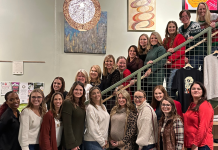 I don’t get the true crime trend. I really don’t. During the past couple of years what was once a secret, “guilty pleasure” of, apparently many, people has exploded out into the open with podcasts, documentaries, countless memes, and even combination true crime/makeup tutorial videos. Parrot Analytics, a media-tracking company, found that the genre was the fastest growing within the streaming industry, rising 63 percent between 2018 and 2021.
I don’t get the true crime trend. I really don’t. During the past couple of years what was once a secret, “guilty pleasure” of, apparently many, people has exploded out into the open with podcasts, documentaries, countless memes, and even combination true crime/makeup tutorial videos. Parrot Analytics, a media-tracking company, found that the genre was the fastest growing within the streaming industry, rising 63 percent between 2018 and 2021.
Call me ill equipped to speak on the topic, but I must confess I’ve not watched or listened to most of the aforementioned media. I’m not really a podcast person on any front and I have no desire to spend my precious kid-free viewing time watching something that will just disturb and upset me.
But that’s the thing, isn’t it? The people watching aren’t disturbed or upset by it. Actually, more often than not, I hear people jokingly reference consuming true crime material as a way for them to unwind and calm down at the end of the day.
From what I see on social media and among mom groups, women in particular seem to be especially enthralled with the true crime genre. I’ve compiled a loose list below of the most common reasons I see friends and acquaintances give for loving these lurid episodes. And why I still can’t make any sense of the fascination.
The reasoning I hear most often is: if women learn about serial killers’ habits and ways of harming their victims, they feel more prepared or on guard for potentially dangerous situations themselves. But what is the likelihood that a random attacker on the street is going to lure you into their van in the exact same way as the psychopath you just heard about on your podcast last night? The actual probability of you being able to better protect yourself after watching a Netflix documentary seems a lot less than if you took a self-defense class or something.
Some say it’s the standard can’t-look-away-from-a-trainwreck scenario that keeps people morbidly fascinated with these stories. I can understand feeling a gruesome curiosity to know how the mystery ends, but I really can’t hang in long enough to even get invested when I know these are things that happened to real people. I am horrifyingly picturing my children or my spouse or my siblings being harmed and experiencing a panic flight response rather than wanting to hear more details to further torment me.
Most interestingly to me, some survivors of violence or abuse say these shows help them feel like they have been given a voice and are no longer an overlooked, marginalized societal secret. If this is helpful in processing their trauma or feeling like their stories are helping others as cautionary tales, they definitely deserve whatever measure of comfort the true crime genre can give them. It seems worrisome, though, that the stories often focus so intently on the perpetrators of the crimes, and run the risk of falsely elevating, romanticizing, or fetishizing the incredible damage they did to their victims. Achieving notoriety or fame seems a motivating factor in many brutal crimes. Is our society’s crime fascination unintentionally giving severely mentally ill people a platform to aspire to?


















